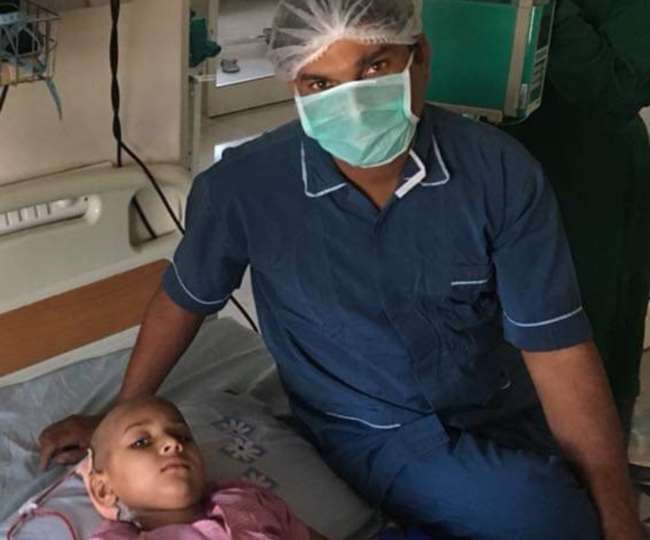- By Talib Khan
- Fri, 03 Apr 2020 02:13 PM (IST)
- Source:JND
New Delhi | Jagran News Desk: There is only one way to protect oneself from the deadly Coronavirus, stay at home, stay safe. There is a lockdown in the entire country and majority of the people, if not all, are following the same. However, there is one disease, in which visiting hospital to get blood transfusion in every 7-15 days is essential for life. We are referring to the children suffering from “Thalassemia”.
In the present scenario wherein, the cities, villages and districts are witnessing curfew like situation due to lockdown, getting blood for transfusion for these kids is a matter of concern.
Keeping in view the same, the youth of Jaipur, Rajasthan, are undertaking the task of transporting donors from their homes to blood bank for voluntary blood donation, in order to keep the worry of these children at bay. Jagran.com came across an appeal made by one Pankaj Aggarwal of Jaipur, Rajasthan through his Facebook post. Citing the Thalassemic children, he wrote, that "these kids are in urgent need, whoever wishes to donate blood, tell us, we would provide you transport facility to them from homes to blood donation to back home".

According to Pankaj Agarwal, the blood crisis was visible for the Thalassemia victims due to the lockdown. Children suffering from Thalassemia have to be offered PRBC (packed red blood cell) once within 7 to 15 days. Thalassemia is a disease in which haemoglobin is not produced in the body of children, due to which they have to be given regular blood change.
Pankaj said that 12 years ago, some youths of Jaipur had jointly formed the Youth Social Services Organization, through which they have been arranging for regular blood camps, SDP donations for Sawai Mansingh Hospital, Rajasthan's largest government hospital. An outdoor camp cannot be held during lockdown. There is a restriction on the gathering of people and at the same time it is also dangerous in view of the corona. In such a situation, he and his friends are going door-to-door to bring donors to the blood bank through their cars. In this, social distance and sanitisation are also being taken care of. They are also being dropped back to their homes after blood donation.
According to Dr. DS Meena, Superintendent of SMS Hospital, Jaipur, there was a danger of lack of blood between the lockdown but we are fully controlling the situation. Blood supply will not be allowed to be disrupted for cancer patients, thalassemia patients and life saving cases. Blood is also being transfused to Thalassemia patients in SMS Hospital, alongwith certain private blood banks which have been directed by the state government to undertake blood transfusion without any charge. Donors are being motivated to ensure that there is no shortage of blood, social service organizations are also working towards the same.

Pankaj Aggarwal, president of the Yuva Sanstha, says that in the last two days in Rajasthan, he has got the blood donated from 22 donors, which has helped 22 Thalassemia children and 22 cancer patients have also got RDP. With this information, an appeal has also been made that on such occasion,whoever wants to come forward for helping the needy may do so and donate blood in blood bank of the SMS hospital, police is also allowing the movement of donors for such emergency service and social cause.
What is Thalassemia?
Virendra Mittal, a children's doctor at Metro Mass Hospital in Jaipur, explains that Thalassemia is a genetic disease, in which synthesis of hemoglobin is problematic. The hemoglobin level of such children is always low. To maintain it, blood transfusion is required, once in 7 to 15 days according to age. This blood is PRBC (Packed Red Blodd Cells) and only Leuko reducible blood is transfused to children.
In case, bone marrow transfer is possible then condition of patient suffering from Thalassemia may change for better, otherwise blood transfusion is required for lifetime. The amount of blood needed, depends on age and weight. The first case of Thalassemia was reported in India in 1938. According to the report of the Center for Disease Control and Prevention, every year about 10,000 children in India are born with Thalassemia Major disease.

